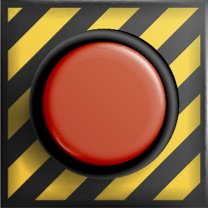Are the social distancing measures an overreaction?

Is America overreacting?
This is the number one question people are talking about today. The context, of course, is virtually every American is now being affected with some kind of loss—loss of a favorite sports season, loss of a planned trip or social event, loss of work, loss of invested money. Yet, weirdly, almost none of us has been affected by SARS-CoV-2 (the virus) itself.
The disconnect between what nature is doing to us, and what we are doing to ourselves, is huge in the United States on March 12, 2020. Given the pre-existing divisions and lack of trust in our society, it’s no surprise that the sum effect is people are questioning whether the social distancing measures are worth it.
It’s a fair question, even if it comes from a worldview that I generally do not share. In general, I defer to the opinions of establishment scientific experts. In general, I respect authority and I trust people in government to try to do the right thing, at least as they see the right thing to be.
But when your small business next to the basketball arena might as well shut its doors for a month, or you’re staying home from work so you can try to get your kids through their newly online education, you are bound to ask whether this is worth it.
First point: Understand the purpose of social distancing.
The purpose of closing the universities is NOT to save the lives of all those 20-year-olds. The purpose of keeping fans out of stadiums is NOT because one infected person in the crowd will kill us all; the coronavirus isn’t smallpox. The purpose is to flatten the curve. (My March 2 post explains this idea.) Briefly, that means we want to spread out the infections over time, rather than have everybody get sick at once. The most important goal is to protect the hospitals from overload. This saves lives in two ways: COVID-19 patients can get a ventilator and intensive care if they need it; and regular patients can continue to receive the usual level of care.
Second point: Understand that 1%, or even 0.1%, of a very large number is also a large number.
The main argument I’m seeing online AGAINST social distancing is grounded in fact: for most people who catch SARS-CoV-2, it’ll be no big deal. Current estimate (could be wrong) is about 80% of cases are like a minor cold.
But what about the other twenty percent? Mortality rates are all over the map right now, so let’s grab a number from the very low end of the spectrum. Let’s say that one-tenth of one percent, 0.1%, of everyone who catches SARS-CoV-2 dies. A tiny fraction. But out of how many? The US population is roughly 325 million. Again on the lower end of the estimates for how contagious this virus is, let’s say 1 in 3 of us gets infected at some point, or about 100 million people. That translates into 100,000 American deaths from COVID-19. A hundred thousand deaths spread out over three years would be similar to influenza. A hundred thousand deaths in a few months would be a crisis. It would mean sick people don’t get the level of care they need, and more die than would otherwise.
Third point: Containment efforts have the biggest impact when done early in the epidemic.
If you wait until your hospitals are in crisis, it’s too late. See my post about incubation period.
Fourth point: The data are inadequate.
I predict that when this is all over and we look back, the diagnostic test fiasco will be seen as the greatest failure of the system. I don’t know all the reasons why, but the fact is the US has been crippled by a lack of testing for the coronavirus. We don’t know how many people have it, where they are, or who they are. We can’t track the virus’s expansion, which makes it difficult to predict where the epidemic is going in the next week or two weeks or month. Therefore it’s hard for many of us to visualize the risk.
With these points in mind: is the (future) benefit of social distancing worth the (present) cost?
We each have a different tolerance for risk. Is your slogan “Better safe than sorry” or “YOLO”? Do you ride a motorcycle or drive an SUV? Wear a seatbelt? A helmet? Individuals make different choices about what they’re willing to sacrifice to be safe. Therefore it’s not a surprise that Americans right now disagree about how far they want society to go to increase our “safety” from COVID-19. One person’s reasonable precautions might be another person’s mollycoddling.
To evaluate whether we are “overreacting” we should consider the cost versus the benefit of social distancing. The costs are pretty obvious to everyone right now. Every canceled conference costs money. Every canceled school play or science fair causes pain and loss. And so on. The benefit is in potential lives saved. This is in the future, and it is uncertain. That makes the risk/benefit calculation really hard. We can’t be sure how many lives are at stake. And we are emotionally invested in the cost of the present, not the abstract benefit of the future. On top of that, if social distancing works, it will look like we went to a lot of trouble for nothing—because in a way, ‘nothing’ is the goal. Just an ordinary day.
So have we gone too far with social distancing? Has the cost become too great for the potential benefit in lives we will save?
This is a values question but there’s also a mercenary logic to define the boundaries. At one extreme, if all the current disruption was intended to save just one life, I think we would call it overreaction (unless the life saved was yours or your grandmother’s—then you might think the cost worth it!) At the other extreme, if we knew our efforts would prevent the certain deaths of one in every two Americans (about 160,000,000 people), I think we’d be equally unanimous in our support.
The true number of COVID-19 deaths we might prevent is obviously somewhere between these two extremes. How many would it have to be for you to say we are reacting appropriately vs. overreacting? A hundred lives? A thousand? A hundred thousand?
Public health experts have judged it is likely enough to be high enough to justify the actions being taken.
Get the scientific backstory on SARS-CoV-2 and emerging infections. Read my concise ebook “The Coming Pandemic” for free. If you like it, please share with others and leave a review on amazon.
0 Comments
Share this:


0 Comments